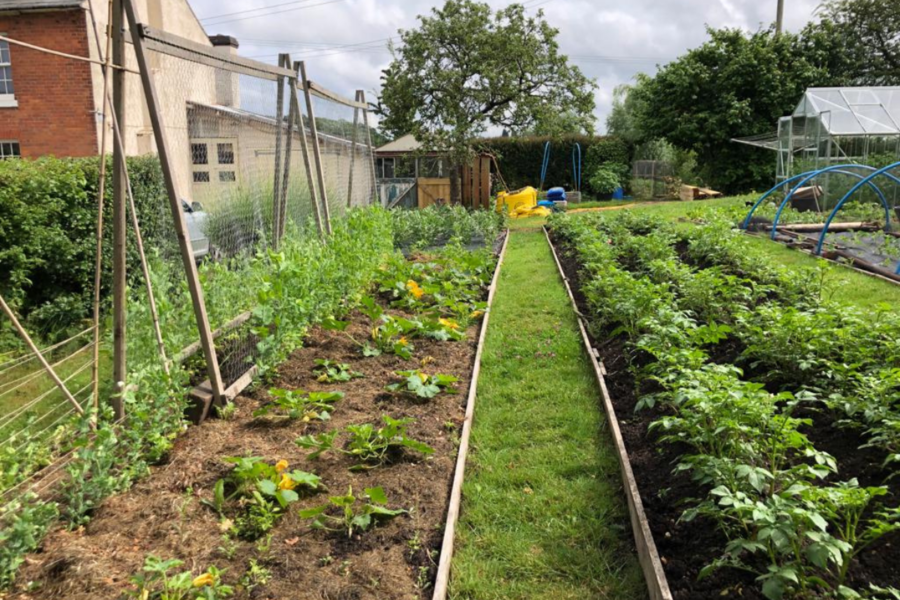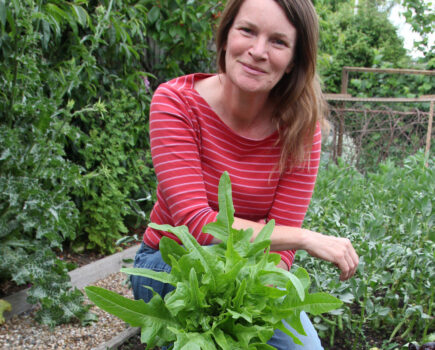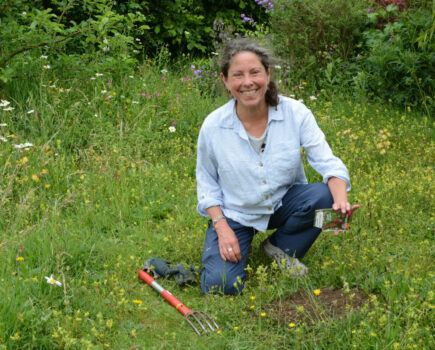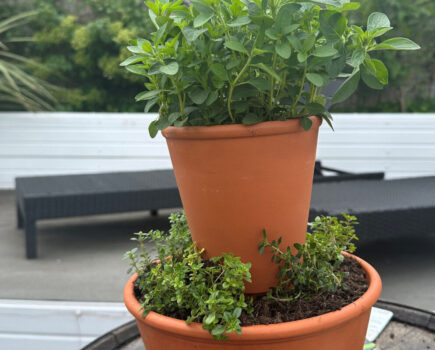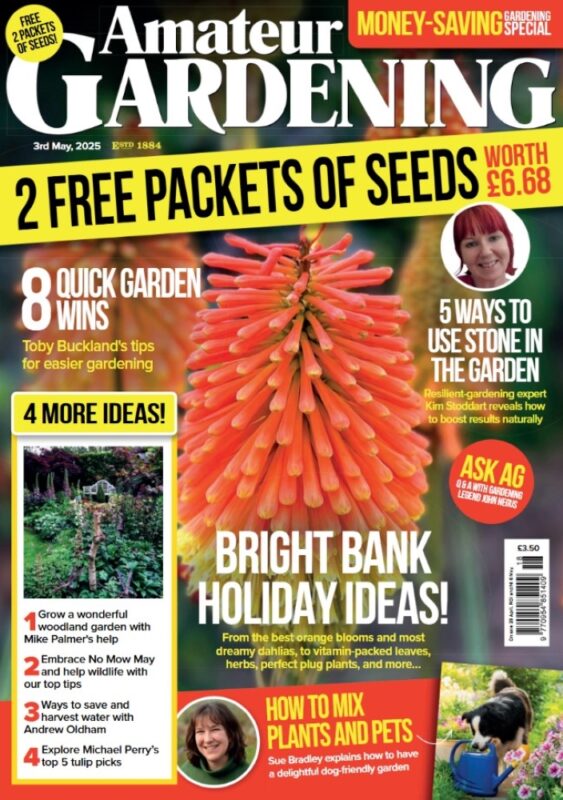Sarah Jeffries offers some of her little green tips to help save money and boost results naturally
I am passionate about building an eco-friendly lifestyle one tiny step at a time with my two kiddiwinks, my husband and our flock of chickens on a plot of land in Herefordshire. I’ve always been aware of the impact us humans have on planet earth and it isn’t a good one. Working in food manufacturing has opened my eyes to how unsustainable our food supply chain has become. Food miles, droughts, chemical usage, waste and excessive plastic packaging all seem out of control, and so over the years I have applied my passion for sustainable living to my garden.
I’ve come so far from my first attempts at nurturing tomato plants in a grobag. I now grow huge quantities of fruit and vegetables, preserving as much as possible. I no longer use any pesticides or herbicides and I make all of our own plant feeds. I avoid buying plastic wherever possible whether its new plant pots or packaging. I save seeds and attend seed swaps and try to make best use of all the resources my garden has to offer, reusing or repurposing old materials where possible.
Growing my own food and flowers in a sustainable way has involved following an ethos that can be summed up by the 7 R’s of waste management, which are refuse, reuse, repurpose, refurbish, reduce, rethink and recycle. So rather than reaching for the wallet, and driving to the garden centre or making purchases online, I stop and think what I can work with instead.
Gardening in a more sustainable way is better for the environment, reduces our carbon footprint as well as encouraging biodiversity. It also saves so much money and feels incredibly good in the process knowing you are doing your bit!
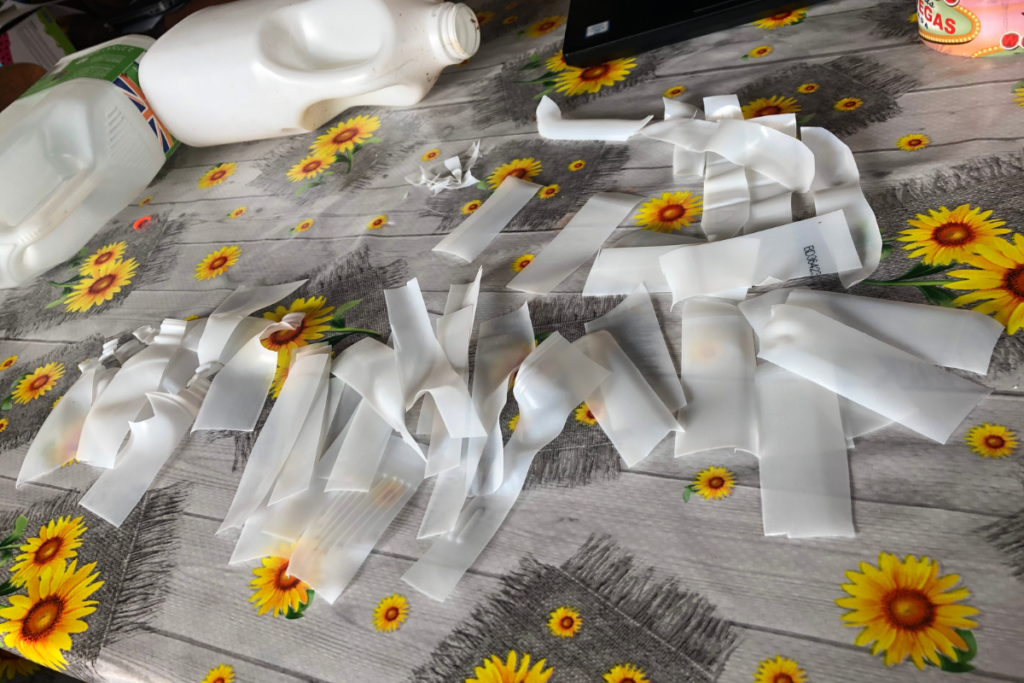
Sarah’s 5 little green tips
Reuse
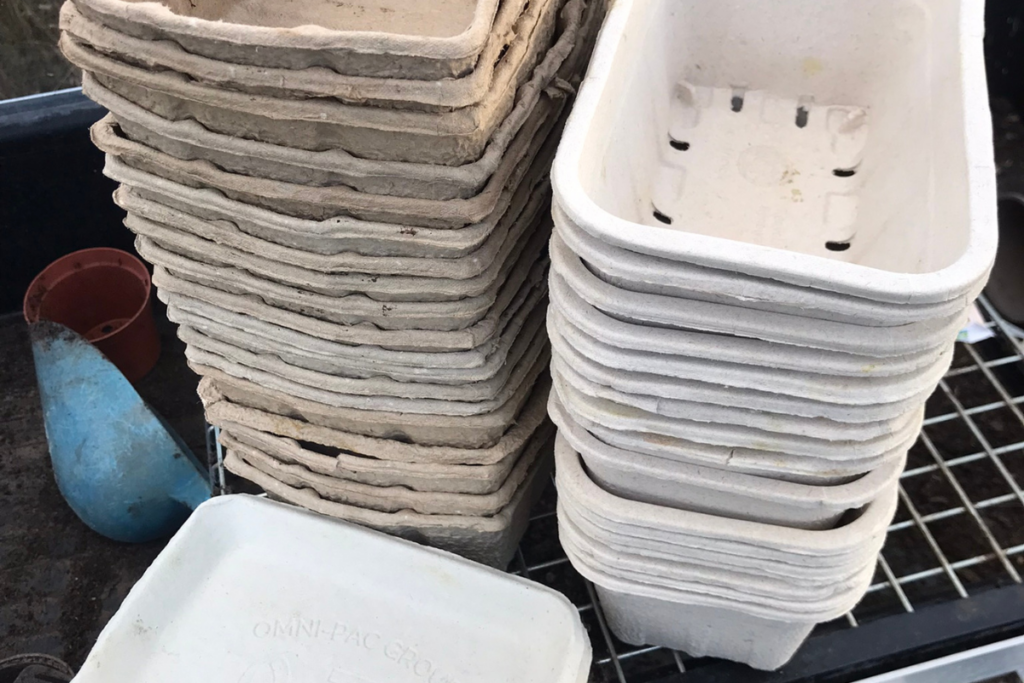
It’s amazing what you can make things out of in your garden. Grape tubs make perfect mini propagators. Yoghurt pots and toilet rolls make great deep root trainers. Margarine and ice cream tubs with added holes in the bottom are great for sowing seeds. Milk cartons can be cut into plant labels or turned into compost funnels. Garden centres often giveaway piles of pots. No need to buy new.
Save
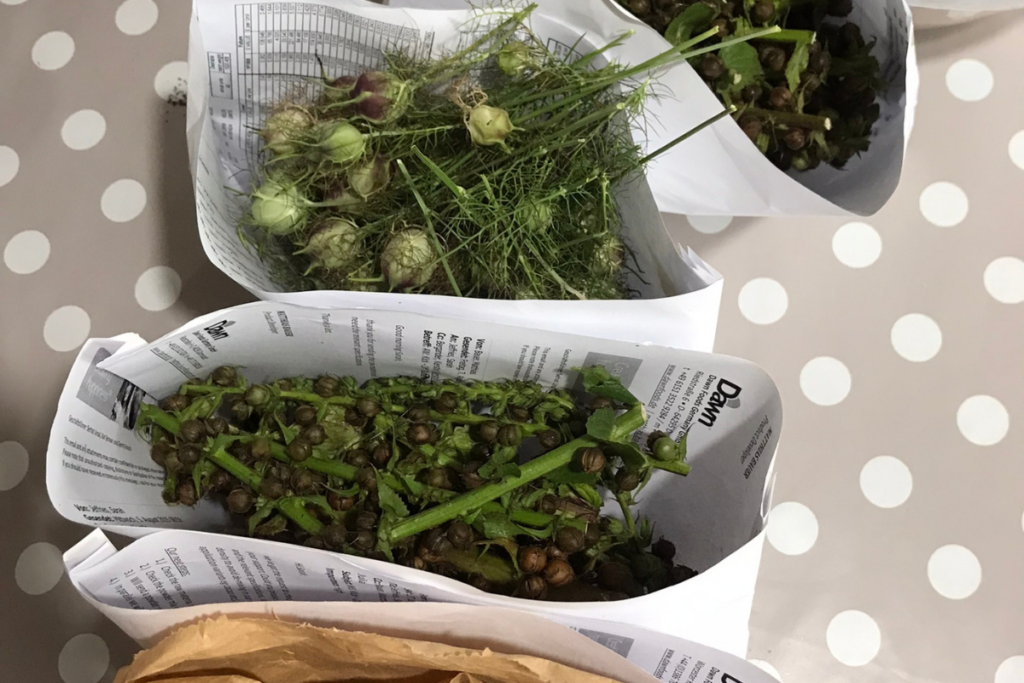
A fantastic way to build up a stock of locally grown seeds without the need for piles of single use plastic packaging is to save your own. Easy seeds to start with are sunflowers, nasturtiums, tomatoes, nigella, calendula, sweet peas and lettuce. Saving seeds gives you plants that are adjusted to growing in your local conditions and will better suit your soil type, weather and local growing conditions.
Feeds
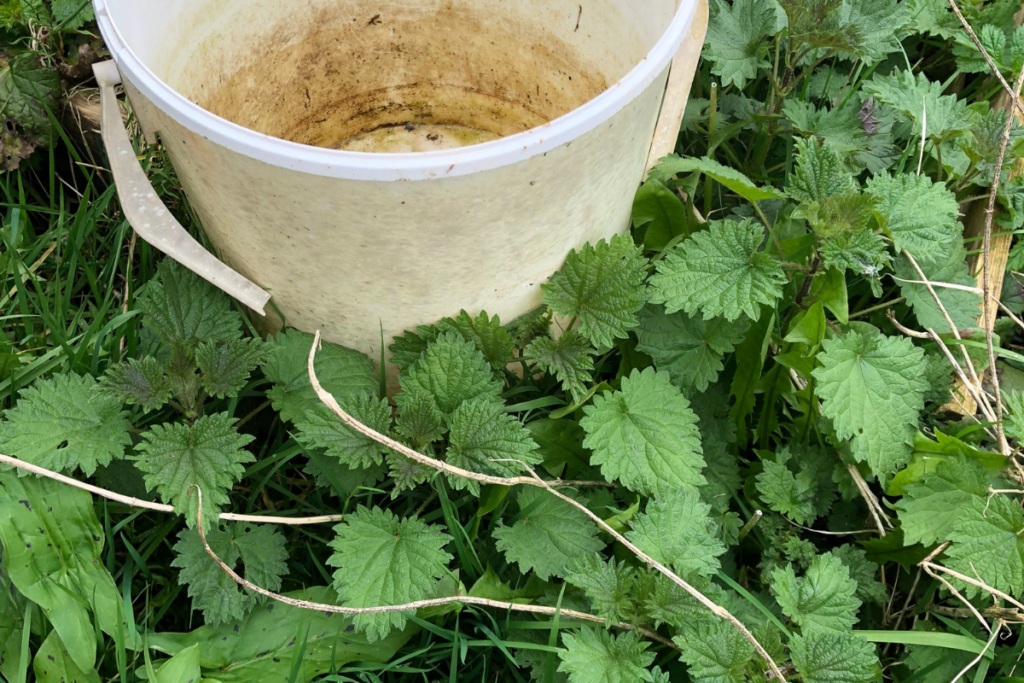
Make your own plant feeds. There is no need to buy those single use plastic bottles from garden centres- it’s so easy to make your own plant food. Chopped up nettles steeped in water makes amazing high nitrogen feed for early leafy growth. Comfrey leaves make a great feed for tomatoes, peppers and cucumbers. Woodash boosts potassium levels and micronutrient levels. Coffee grounds and Christmas tree needles make fantastic acid boosting additions to plants like blueberries and roses.
Mulch
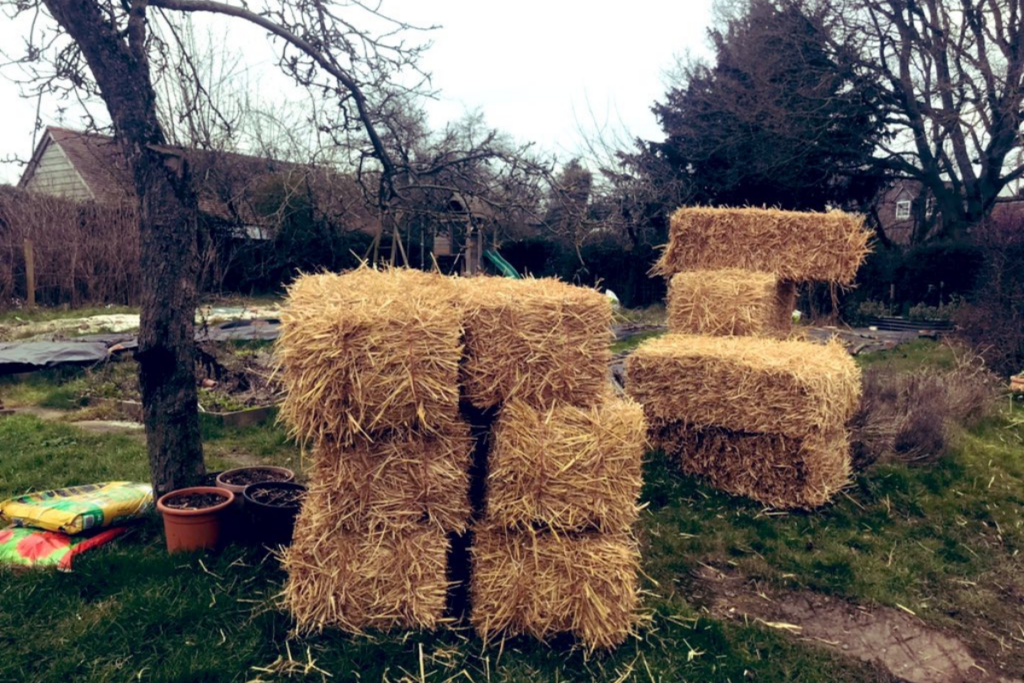
Mulch is magic stuff. It reduces the need for watering, adds organic matter to your soil and reduces weed growth. Less weeds mean all those nutrients in the soil are left for your fruits, vegetables or flowers. Conserving water is so important as our climate changes. And we all know if we look after our soil it looks after our plants. Grass cuttings, layers of newspaper, cardboard and leaf mould don’t cost any money and make great mulch. Last year I treated myself to some straw as well.
Make space for edibles
Ornamental gardens are stunning but a plot full of fruit bushes and vegetables are somehow even more beautiful as well as incredibly satisfying. And don’t forget planting flowers amongst your veggies will boost pollination and help control insects. Perennial fruit bushes are a fantastic investment; think blueberries, raspberries, strawberries and currants. It doesn’t take long to get the return on your investment in fresh fruit. Delicious fruit with no unnecessary plastic packaging, no air miles and no chemicals.
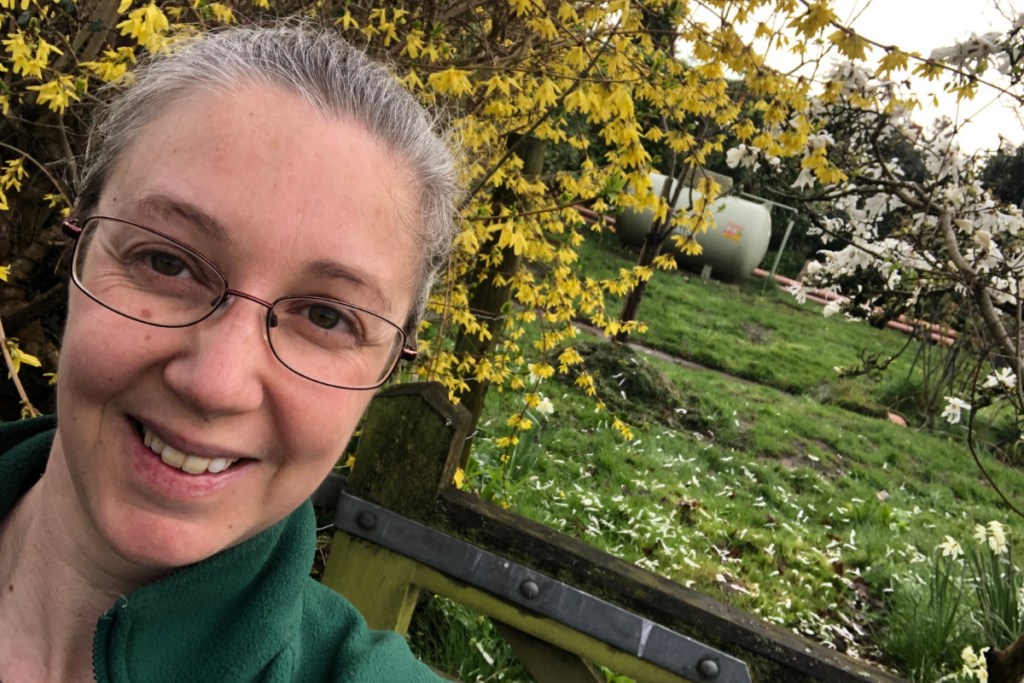
Find more tips, advice and articles like this at the Amateur Gardening website. Subscribe to Amateur Gardening magazine now.

